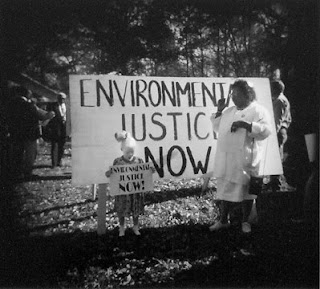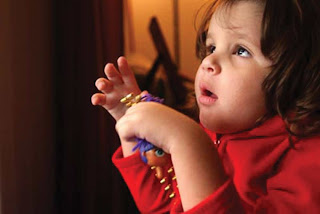 1). A poem on social justice, I am not sure if it makes sense, it's what came to mind when thinking about social justice.
1). A poem on social justice, I am not sure if it makes sense, it's what came to mind when thinking about social justice.-this picture represents my children I work with, and that I want a better future for them all, they mean everything to me and are my passion. These kids set future for my foundation in teaching them someday.
To Rise Up
A rise to social justice
I continue to ascend these mountains to justice
Climbing towards our justice for our children
And along the way, we provide education
To service better our children in a way
Our child's needs are at stake
Doesn't matter if we are colored, rich, or of our race
The teachers are here for our children, and supporting them
We most definitely believe in our education
 and in our children to succeed
and in our children to succeedI believe in the right for social justice to climb the peaks and go to the top
Children battle against barriers at home and at school, facing challenges
Disadvantages and advantages within their community and society as well
Their right to decide how they want to be educated
We as teachers open doors and opportunities for our children
Supporting the choices our kids make from elementary, to middle, to high school, and finally to college
They, our children face obstacles every day of their life
And each day they serve our needs as well as theirs
They are motivated to continue their social justice as well as their education
They're brains are educated and their hearts are filled with hope
I hope social justice rises higher every day
To work at climbing higher and higher
Our community and supportive staff will prove that it's working at rising every day
Patty-The significance isn't that great. As an educator I believe people have the right to learn about problems and then stand up whether together or alone and fight for them. This does not necessary mean only one group of people but a vast number of them especially people of that are minorities.
A teacher lights the minds of her students. The flame inside the brains of these young students blazes as their heads fill with all different kinds of knowledge. The flame in one's mind will never burn out because education and knowledge is always pouring inside, and will never quit, lighting the flame higher and higher. The candle burns day and night and never stops, and only gets brighter as the teacher fills the students mind with new ideas. A teacher needs to know how to keep her kids entertained and has to have enthusiasm in order for the flame to keep burning. A teacher needs to excited to teach.
Teaching has been a huge part of my life, and I have my teachers to thank for that. My teachers have always been supportive in the decisions I made. They've been like a candle because they consumed themselves with enough light, and they gave it to their students, like me. They have lighted my path with a burning flame. They are the reasons why I want to become a teacher, it has become my passion and it will always be my passion. Teaching for me is like a candle because I want to be the one who puts the light into a students eyes as well as their minds. I want them to know that I'm their for them, lighting the path for them to take. I want to make and be the difference in their lives. My compassion shows this, because I am the candle in my students eyes, well will be. Working with children already
 , I know that I put a light into them because I consume myself with them and I show them the right path to take. I light the way for them. I believe that compassion, and passion is a huge factor in teaching, without those, you are not a good teacher, because with it, the students are able to connect and trust you as a person, rather than just look at you as a teacher and nothing else. They'll mistreat you and abuse you, but with passion and compassion, and lighting a way for them, they learn to respect you.
, I know that I put a light into them because I consume myself with them and I show them the right path to take. I light the way for them. I believe that compassion, and passion is a huge factor in teaching, without those, you are not a good teacher, because with it, the students are able to connect and trust you as a person, rather than just look at you as a teacher and nothing else. They'll mistreat you and abuse you, but with passion and compassion, and lighting a way for them, they learn to respect you.A candle consumes a room, lighting the way for others and that is what teachers do on a daily basis for their students. I want to be that teacher who does that for their students, I believe I will be. Teachers, when walking into a room, are always open to new ideas and that's the sort of like a candle burning because a candle sits in the room, and is open to anyone who needs light to touch them, to lead a path for them. Teachers are our candles in lighting our education to succeed in the future. I strongly believe this quote to be true because teachers are open to anything new we have to say, and they light our paths so that we may choose the right one. They help to make us believe in ourselves and they leave a forever burning flame in our minds.
3). An important area in education to me is parents being more involved in their child's education as well as their life.
I believe that every parent should be involved in their child's education because it is very important for the child to know their parents are their for them and if the parent is involved it means that they care about their child.
-higher grades, test scores and graduation rates
-better school attendance
-increased motivation, higher self-esteem
-lower rates of suspension
-fewer instances of violent behavior
With parent involvement students do a whole lot better because they know parents care a bout them. I can't stress how important it is for a parent to be involved in their child's education. All those above stated things, is very much so true. Students do better in school and they feel better about themselves. The more parents become involved, the higher the rate of their child graduating is.
I believe that parental involvement is a huge factor in how students do in school and how they educate themselves in a classroom. I strongly recommend that parents get involved because their students are more likely to become successful in their future. This is a huge controversial topic because many parents are not getting involved and their children are at the chance of not graduating, which is not good. This is why I picked this topic specifically because I want parents to motivate their children by supporting them in their education because it's very, very important to the child. With the parent being involved the children can benefit from it and do the best they know they can.




















